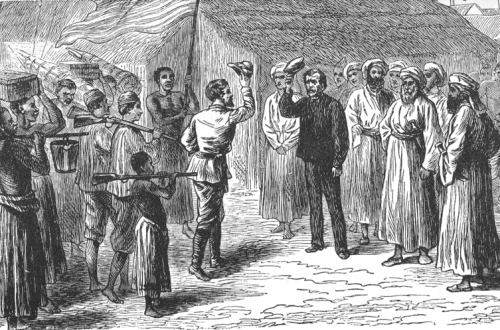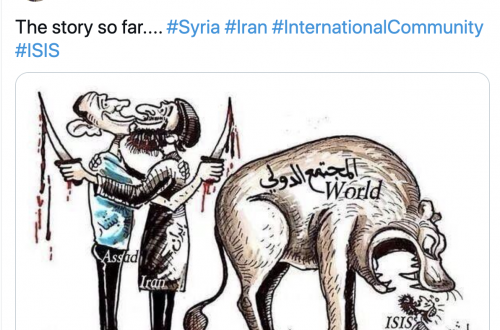According to conventional military logic the raid on Green Island, a British built Egyptian fortress shouldn’t have happened. It certainly shouldn’t have been an Israeli victory. In that sense it fits perfectly into the narrative of the IDF winning against all odds. This little known special forces operation was carried out in 1969. It was a joint operation by the tip of the IDF’s spear; the Shayatet13 Naval commandos and the legendary Sayeret Matkal army unit.
That Green Island was considered impregnable was part of the reason it was attacked. Another great victory was needed to reassure the Israeli people of their military mastery over their Egyptian foes. The deputy commander of the Shayatet13 force was Lieutenant Ami Ayalon. IDF casualties were high at six dead. Egyptian casualties stood at 80 dead. Defence Minister Dayan had his victory for the Israeli public. According to the official citation Ayalon displayed heroism of the first order;
“On the night of July 19-20, in the battle for Green Island, First Lieutenant Amichai ‘Ami’ Ayalon was the deputy commander of a band of operators in the assault. At the time of the attack, he tossed a grenade at the radar position, and during the assault moved ahead of his soldiers to lead the attack. When he climbed on the roof of one position, he suffered shrapnel wound to the forehead, but still managed to hurl a grenade, even though it failed to explode. Under heavy fire, he continued his advance along with First Sergeant Zalman Rot, and wiped out a machine gun nest. He later hooked up with another operator, and wiped out two more enemy positions. Leading the attack against a gun position, a grenade blast seriously wounded him…though he continued to fire his weapon at enemy positions; another enemy grenade detonated near him, this time wounding him in the hand and neck. Severely wounded and bleeding profusely, he managed to continue his attack and only after the mission was complete did he inform his superiors of his wounds and evacuate himself.””
Matti Friedman has never met a victory like this. He is a generation removed from these kinds of victories. His military experience was dominated by Lebanon. There he served in a fortified installation called the Pumpkin. His days were separated not by sunrise or sunset but by shifts at guard duty and the occasional ambush.
He dreamed of returning to Lebanon during peacetime and hiking the Lebanese river Litani with his buddies. He did return after his service, using his Canadian passport and a lot of nerve. Though his parents live on Israel’s Northern border, he left Israel to travel to Lebanon by way of Canada to make sure no one could trace him back to Israel when he arrived. When I heard him speak he said something like;
“I travelled 5000 miles to take a trip to a place a 12 minute cab ride away from where my parents live.”
Ayalon rose up through the ranks of the IDF to become commander of Shayatet13, commander of the Israeli Navy and ended his career as head of the Shin Bet. To my mind he was the most impressive of the former heads of the internal security service interviewed in the documentary the Gatekeepers.
Friedman finished his mandatory service and became a journalist. He worked for the Associated Press (AP) for six years before leaving and becoming a writer. Disillusioned with his time in AP Friedman wrote about the way the media portrays the Israel story and how he sees it as having little to do with the reality of the country. The story went viral. His book Pumpkin Flowers is his military memoir and a lot besides. It’s what I went to hear him discuss at Jewish Book Week in London but he spoke about more than “just” that. In response to a question about Israel’s future he spoke about the Middle East in general.
The differences between these two men couldn’t be more stark. Though Friedman speaks coolly, calmly and is convincing his words are fatalistic. He agrees a military occupation is a negative thing for Israel, that it represents a slow degradation of the country but argues that some kind of “peace deal” that sees an IDF withdrawal from the West Bank would be much worse. Missiles would fly, the anarchy of Syria is just a 90 minute drive away and who knows what might come in such a power vacuum? It is difficult to argue, Friedman speaks with the weight of recent history on his side. He also speaks like a man who is resigned to the fate of his country. Peace didn’t work, war didn’t work so now we have a grey area of no peace, no war. And what he acknowledges is a slow path to destruction which is, apparently, preferable to nothing except than the speedy path to destruction offered by “peace”.
Ayalon on the other hand is passionate, full of zeal. He interrupts me when I try to get a word in as if every point must be spoken without interruption or else it might not come to pass. He talks non stop about how support for Hamas stands at a mere 20%, but he then adds that currently 75% – 80% of the Palestinian populace believes the solution to the conflict can only come through violence against Israel. Even this acknowledged fact doesn’t phase him, though he calls it a problem.
He states matter-of-fact that the IDF withdrawal from Gaza practically guaranteed Hamas would take over and adds that he told Sharon so at the time. He is overtly negative about Israel’s politicians while unfailingly positive about the chances for peace. I called him not to hear all of these things, which I had already heard him say, but to ask him how he intends to get there. It took me 35 minutes to get that one question in and he laughed when I finally cornered him with it (I think) because he didn’t really have an answer.
I look at these two men. Both of them forged by Israel. Ami grew up before Israel took the West Bank when the country was at its weakest. He experienced victories one after the other. And Matti, the man who never knew Israel without the West Bank and spent his time as part of a superior force stuck in the mud against a foe who seemed to have all the advantages despite having none of them.
I cab’t help but feel it should be the old man who is bitter, the old man who has seen too much war, who lost too many friends and watched the opportunities for peace slip through his fingers. It should be Matti, the journalist, the storyteller, the younger man who should be full of hope for the future. But while Ayalon is full of hope Matti sounds jaded at Israel’s future prospects.
Reading between the lines of Ayalon’s words it is clear he understands that were there a deal in the works whose end point was a Palestinian state Hamas would launch waves of attacks on Israel. Ayalon can justify the casualties Israel would suffer. He knows what so many people on the left are afraid to admit, that a deal with the Palestinian Authority would mean a devastating wave of attacks from Hamas. I think he understands this as a short term issue that would fade if a Palestinian state became a success. In order to have peace with Palestinians they need to have something to lose he argues.
But when I get through it all he concedes he doesn’t really know how we’ll break through the hold the minorities have over Israel and Palestine. Strategically he has the vision but tactically it’s a non starter. Israelis aren’t going to vote for something that brings a wave of suicide bombers down on them.
So far as Matti’s concerned there’s nothing good on the horizon for Israel. He grew up experiencing the suicide bombers of the 1990s and suffered through the second Intifada upon his release from compulsory military service. Everything he has experienced has taught him that peace is a pipe dream and that conflict management in what he, almost mockingly, calls “the new Middle East”.
These two men, these sons of Israel, the old warrior full of hope and the jaded young writer make a sad metaphor for Israel. A land where only the old feel hope and where the young live in their psychological bunkers, preparing for yet another inconclusive war.
And while young and old argue with one another over whether hope can exist the Knesset continues deaf, dumb and blind to all around it.


